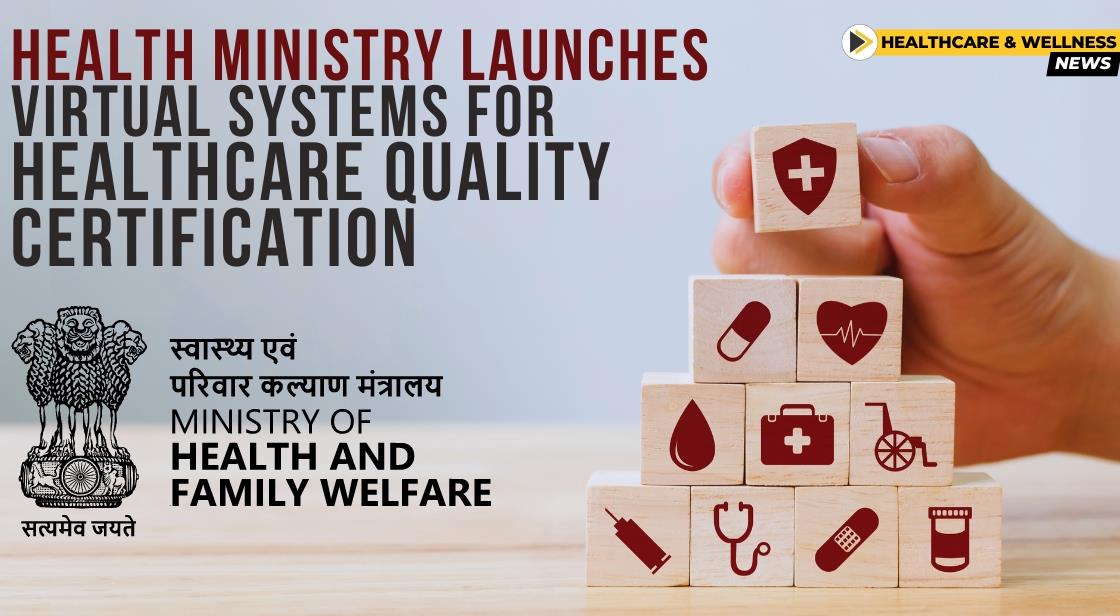Health Ministry Launches Virtual Systems for Healthcare Quality Certification

News Synopsis
The Ministry of Health and Family Welfare has taken a significant step towards improving healthcare quality and service delivery in India. On Friday, they announced the launch of a suite of virtual systems aimed at:
-
Simplifying quality certification processes for healthcare facilities
-
Enhancing monitoring of healthcare standards
-
Streamlining licensing procedures for food vendors
These initiatives represent a major innovation in India's public health infrastructure, promising to save both time and resources.
Virtual Assessments for Ayushman Arogya Mandirs (AAM-SCs)
-
Replacing Physical Inspections: The new virtual National Quality Assurance Standards (NQAS) certification assessment will replace time-consuming physical inspections for Ayushman Arogya Mandirs Sub-Centres (AAM-SCs). This network comprises over 140,000 sub-centres, forming the backbone of India's primary healthcare system.
-
Maintaining Quality Standards: While virtual assessments offer efficiency benefits, ensuring quality remains paramount. Aradhana Patnaik, Additional Secretary and Mission Director of the National Health Mission (NHM), emphasized that around 10% of virtually assessed sub-centres will still undergo random physical inspections to verify adherence to quality standards.
Monitoring Public Health Standards with a New Dashboard
-
Quantifying IPHS Implementation: The launch of a new dashboard marks a crucial step towards quantifying the implementation of Indian Public Health Standards (IPHS) guidelines across healthcare facilities. Introduced in 2007 with periodic updates, these guidelines establish quality benchmarks for public health facilities, ranging from primary to secondary levels.
-
Self-Assessment and Improvement: The Ministry of Health and Family Welfare encourages all healthcare facilities to utilize the dashboard for self-assessment. This allows them to identify gaps in their implementation of IPHS guidelines and prioritize areas for improvement.
Instant Licensing for Food Vendors
-
FSSAI Simplifies Processes: The Food Safety and Standards Authority of India (FSSAI) announced the launch of a new feature within their Food Safety and Compliance System (FoSCoS) platform. This functionality enables the instant issuance of licenses and registrations for select food businesses.
-
Enhanced User Experience: The "tatkal" (instant) licensing system aims to significantly simplify the licensing and registration process for food vendors. This initiative aligns with the Ministry's 100-day program goals and promises a more streamlined user experience for food businesses.
Improved Standards for Public Health Laboratories
The Ministry also unveiled new NQAS guidelines specifically designed for Integrated Public Health Laboratories (IPHLs) located at district hospitals. These standardized guidelines aim to:
-
Enhance Management and Testing Systems: By establishing clear standards, the IPHLs will benefit from improved management practices and more competent testing systems.
-
Increase Reliability of Test Results: Ultimately, these advancements will contribute to a higher level of trust in laboratory outputs, benefiting clinicians, patients, and the public at large.
Conclusion
The launch of these virtual systems signifies a significant leap forward in India's healthcare infrastructure. By embracing technology, the Ministry of Health and Family Welfare is paving the way for a more efficient, standardized, and quality-focused healthcare system.
Here's a quick recap of the key takeaways:
-
Virtual assessments for AAM-SCs will expedite quality certification while maintaining rigor through random physical inspections.
-
The new IPHS dashboard empowers healthcare facilities to self-assess and improve their adherence to quality standards.
-
The FSSAI's instant licensing system streamlines the process for food vendors, enhancing user experience.
-
Standardized NQAS guidelines for IPHLs will elevate the quality of lab management and testing, leading to more reliable results.
These initiatives hold immense potential to improve public health outcomes in India. By streamlining processes, promoting self-assessment, and ensuring quality standards, the government is taking a commendable step towards a healthier future for its citizens. The success of these programs will hinge on effective implementation and continuous monitoring to ensure that the envisioned benefits are realized on the ground.
You May Like









